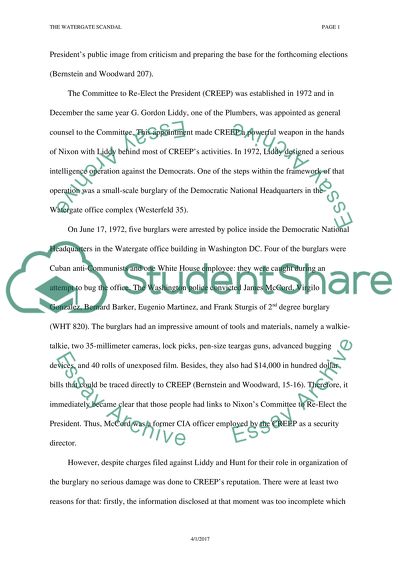Cite this document
(“The Watergate Scandal Essay Example | Topics and Well Written Essays - 1500 words”, n.d.)
The Watergate Scandal Essay Example | Topics and Well Written Essays - 1500 words. Retrieved from https://studentshare.org/history/1521394-watergate
The Watergate Scandal Essay Example | Topics and Well Written Essays - 1500 words. Retrieved from https://studentshare.org/history/1521394-watergate
(The Watergate Scandal Essay Example | Topics and Well Written Essays - 1500 Words)
The Watergate Scandal Essay Example | Topics and Well Written Essays - 1500 Words. https://studentshare.org/history/1521394-watergate.
The Watergate Scandal Essay Example | Topics and Well Written Essays - 1500 Words. https://studentshare.org/history/1521394-watergate.
“The Watergate Scandal Essay Example | Topics and Well Written Essays - 1500 Words”, n.d. https://studentshare.org/history/1521394-watergate.


